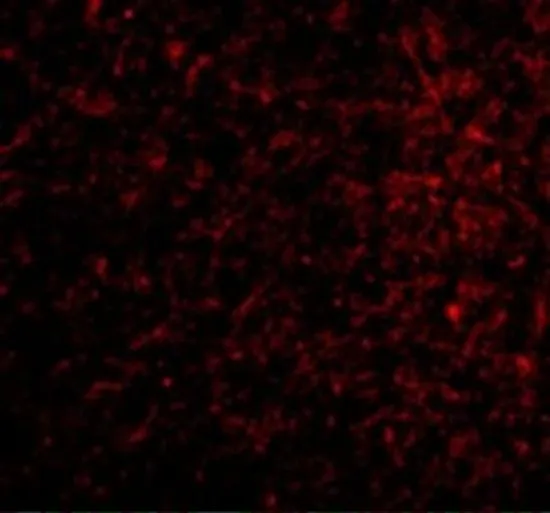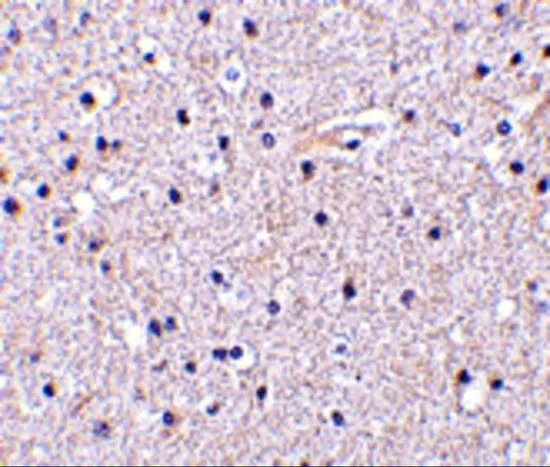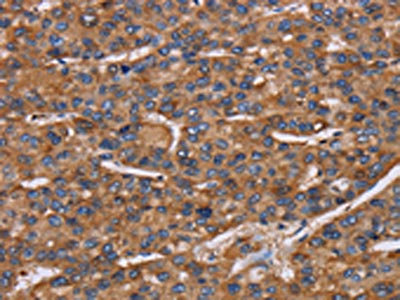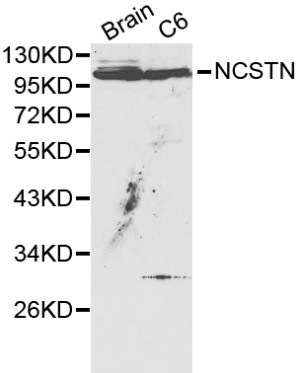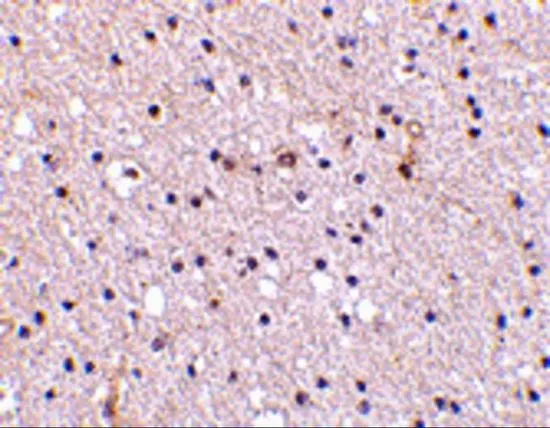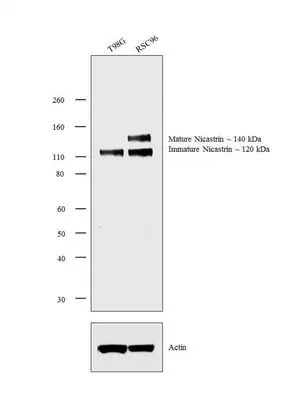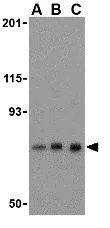
WB analysis of mouse brain tissue lysate using GTX31751 Nicastrin antibody. Working concentration : (A) 0.5, (B) 1, and (C) 2 μg/ml
Nicastrin antibody
GTX31751
ApplicationsWestern Blot, ELISA, ImmunoHistoChemistry, ImmunoHistoChemistry Paraffin
Product group Antibodies
ReactivityHuman, Mouse, Rat
TargetNCSTN
Overview
- SupplierGeneTex
- Product NameNicastrin antibody
- Delivery Days Customer9
- Application Supplier NoteWB: 0.5 - 2 microg/mL. IHC-P: 5 microg/mL. *Optimal dilutions/concentrations should be determined by the researcher.Not tested in other applications.
- ApplicationsWestern Blot, ELISA, ImmunoHistoChemistry, ImmunoHistoChemistry Paraffin
- CertificationResearch Use Only
- ClonalityPolyclonal
- Concentration1 mg/ml
- ConjugateUnconjugated
- Gene ID23385
- Target nameNCSTN
- Target descriptionnicastrin
- Target synonymsATAG1874, nicastrin, anterior pharynx-defective 2
- HostRabbit
- IsotypeIgG
- Protein IDQ92542
- Protein NameNicastrin
- Scientific DescriptionThis gene encodes a Type I transmembrane glycoprotein that is an integral component of the multimeric gamma-secretase complex. The encoded protein cleaves integral membrane proteins, including Notch receptors and beta-amyloid precursor protein, and may be a stabilizing cofactor required for gamma-secretase complex assembly. The cleavage of beta-amyloid precursor protein yields amyloid beta peptide, the main component of the neuritic plaque and the hallmark lesion in the brains of patients with Alzheimers disease; however, the nature of the encoded proteins role in Alzheimers disease is not known for certain. Alternatively spliced transcript variants have been described, but their full-length nature has not been determined. [provided by RefSeq, Jul 2008]
- ReactivityHuman, Mouse, Rat
- Storage Instruction-20°C or -80°C,2°C to 8°C
- UNSPSC41116161

